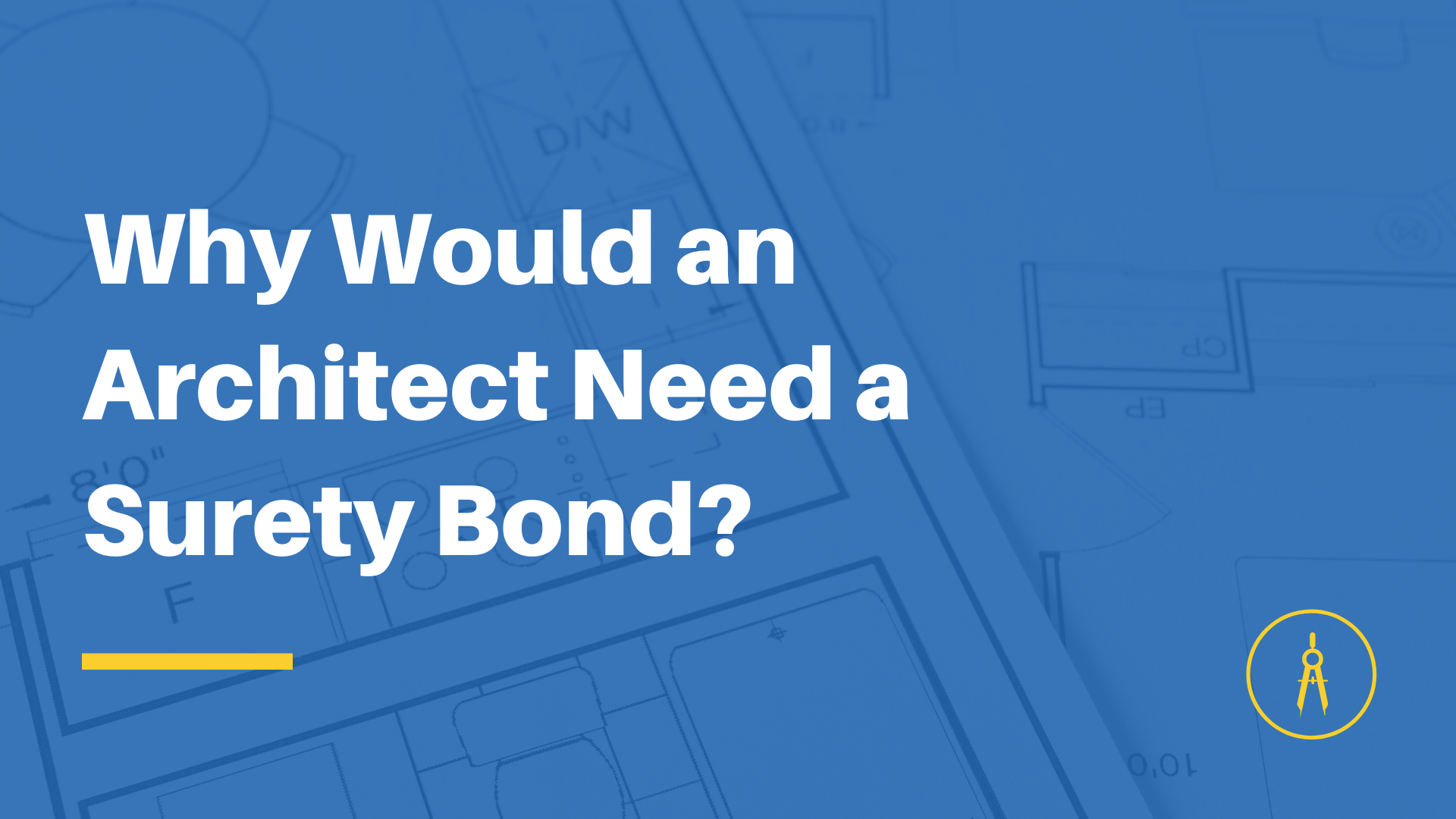Why is a surety bond needed by an architect?
People generally hire an architect for two reasons. First, for the design expertise, and second, to pursue the project through all of the necessary steps involved in the construction of a building or other large project.
An architect is responsible for ensuring that the drawings and specifications used to construct the building are done so according to code standards and specifications. The architect provides oversight during construction. You may need an architect’s surety bond if you’re concerned about both of these duties being done properly.
A license can be revoked if it’s found that an individual working under their license has not followed proper procedures or is practicing without a license. If your contractor does not have an active architect’s license or failed to register with state regulators as required, they may not be covered by an architect’s surety bond.
The surety bond guarantees that the contract between you and your architect will be completed according to state regulations whether or not they are in good standing with their licensing board.
An architect’s license may be revoked due to several reasons. Most commonly, it is because of failure to meet continuing education requirements. If an individual wants to work under their architectural license they are required to complete a minimum number of hours for professional development each year in order to keep their license valid.
What are construction surety bonds?
Construction companies use surety bonds to guarantee that the job will be done properly. A bond protects both the homeowner and/or contractor who hires the subcontractors. If your construction company does not have an active license or fails to register with state regulators as required, they may not be covered by a general contractor’s surety bond.
The four different types of construction bonding are Bid Bonds, Performance Bonds, Payment Bonds, and License & Permit Bonds. Each bond has different requirements for issuance but all are backed by a single, third-party issuer which can be an insurance company or financial institution.
Who benefits from these bonds?
People in all industries, but especially those involved in construction and design, can benefit from these bonds.
If you’re not currently insured under an architect’s surety bond, or if your license has been revoked by the state licensing board for failure to maintain continuing education requirements, you may be unable to work as an architect without obtaining a new surety bond.
Contractors generally use performance and payment bonds which protect both homeowners and subcontractors. The contract is guaranteed so long as the contractor completes the projects according to specifications and for the agreed-upon price.
Surety bonds also give contractors access to bonding capacity which will allow them to bid on larger more complex jobs they would otherwise be unqualified for due to insufficient financial capacity.
If you’ve been approached to waive your right to a surety bond from the prospective contractor or architect, you should know that it’s illegal to do so. If an individual wish to become bonded as a contractor they must be approved by the licensing board for their license type. Surety bonds are underwritten based on experience and financial capacity, not credit scores or FICO scores.
How are surety companies able to offer this protection?
Surety companies underwrite a bond based on the bonding capacity they have available at any given time.
If your architect or contractor doesn’t have an active license with the licensing board, is not in good standing with their licensing board, or cannot provide proof of having obtained a bond from a licensed surety company as required by law, they may be unable to work as an architect or contractor without obtaining a new architects surety bond.
A general contractor’s surety bond guarantees that the job will be done properly and for the contracted price. The bond protects homeowners and subcontractors from financial loss if there are accidents related to defective materials or unforeseen site conditions during construction that result in delays. Your contractor should be covered by a general building contracting bond, which protects the investment you make in your home over time.
A general contractors bond can cover multiple construction jobs (two buildings at the same site) with one bond. The surety company underwrites this based on experience and financial capacity. Your contractor should be able to provide you with this information prior to starting any work on your property. If they cannot, they may not be properly bonded for their level of expertise or responsibility (home renovation, additions, etc.).
Can bonds be written only on projects which are let out for bid?
Contractors revolve bonds which can be written on jobs let out for bid or negotiated.
For projects let out for bid, the surety company rates and underwrites the bond based on experience and financial capacity as long as the contractor has submitted a notice of commencement with state regulators for all contracts over $10,000.
Construction companies without an active license may need to obtain a new license in order to qualify for a general contractors bond. A request can be made with licensing board after the application is completed and approval is granted by the surety company.
Once bonded by a licensed carrier, it is illegal to waive this coverage at any time even if you no longer own property. If your contractor does not have an active license with the licensing board or cannot provide you with proof of a project bond, they may not be properly bonded for their level of expertise or responsibility (home renovation, additions, etc.).
